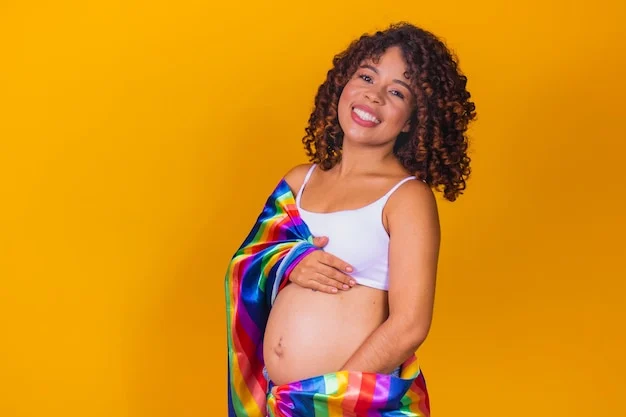I recently came across an intriguing piece in the Washington Post by Jessica Taylor, who critiques the label “single mother by choice.” She argues that the term fosters a false hierarchy among single mothers, suggesting that some are superior to others. While her arguments are compelling, they overlook many women’s realities. Traditionally, this label has been linked to affluent, straight, white women who leverage their resources to start families, which indeed makes it feel elitist and classist. This narrative often sidelines queer women, low-income mothers, and women of color who are also choosing to raise children alone.
For me, identifying as a single mother by choice is a powerful statement of reclaiming my bodily autonomy and reproductive rights in a society that often undervalues Black motherhood, particularly single Black motherhood. At 33, while managing a busy career as the director of a research facility at a major university, I decided I wanted to become a mother. I could have easily made excuses—my career, finances, cramped New York apartment, or the absence of a partner—but none of those reasons held weight in my heart.
My evenings had mostly revolved around socializing with friends at a local bar we jokingly called the “Southern office.” So when I shared my decision to get pregnant solo during one of our late-night chats, my friends were taken aback. “Are you sure?” they asked, and I confidently replied, “Absolutely.” We toasted to my future journey into motherhood.
By Valentine’s Day 2009, I was pregnant with twins through IVF, a complex and pricey process often inaccessible to many women facing reproductive challenges, especially those from marginalized backgrounds. During my time at the Columbia University Reproductive Care Center and in birthing classes, I often found myself as the only woman without a partner in sight. Yet, I didn’t mind; my doctor was wonderfully supportive, channeling that Rosie the Riveter energy: “You can do this!”
As my belly grew, a friend once asked if I worried about being seen as a young, single Black mother—a veiled reference to society’s negative stereotypes surrounding Black motherhood. My answer? Not even a little. I had no concern for the judgments of others, and my own upbringing by a single mother showed me firsthand that the prevailing narratives about Black single mothers—whether by choice or necessity—were simply untrue.
“Oh, your husband must be thrilled!” people would say, or, “Are you planning to stop working after the babies come?” These inquiries were loaded with assumptions about marriage, heterosexuality, job flexibility, income, and maternity leave—highlighting how far we still have to go as a society when it comes to supporting all mothers.
Without a husband, and having used IVF, I took pleasure in the bewilderment of those who asked about my partner. “No need to apologize,” I would often say, “It’s all good. I have no shame in my game.”
I use the term “single mother by choice” not to distance myself from other single mothers but to challenge prevailing attitudes about motherhood and who gets to define it on their terms. We’re all navigating this motherhood journey together.
If you’re interested in learning more about home insemination options, check out this article on home insemination kits. For authoritative information on artificial insemination, visit Cryobaby’s at-home insemination kit. And if you’re curious about IVF, Healthline offers great insights.
In summary, embracing the title of “single mother by choice” is a declaration of autonomy and defiance against societal perceptions. It’s a reminder that motherhood can take many forms, and every journey is valid.
